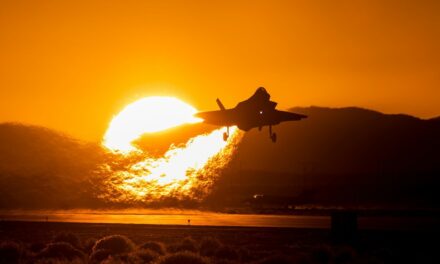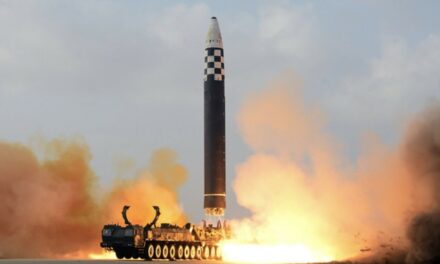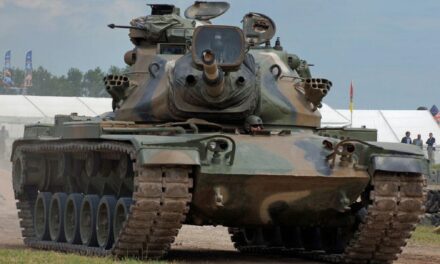We support our Publishers and Content Creators. You can view this story on their website by CLICKING HERE.
Key Points: Australia is anxious about two conflicts: Russia’s attritional war in Ukraine and a potential Chinese attack on Taiwan. While Canberra supports Ukraine, a Chinese victory over Taiwan directly threatens Australia’s survival as a fully independent state.
-With the United States possibly weakened by a Taiwan defeat, China could expand militarily into Southeast Asia, isolating Australia. Japan and South Korea might go nuclear as China secures regional dominance from the East China Sea to the South Pacific.
-Australia’s choice, then, is between resisting Chinese aggression or facing a new order under Beijing’s influence. Deterring China remains a paramount and urgent priority.
Australia’s Taiwan Dilemma: Could Beijing Dominate the Indo-Pacific?
Other than the Middle East, the world faces the possibility of two major wars escalating in Europe and East Asia, over Ukraine and Taiwan.
Australia must worry about either of those wars, but ultimately it’s the possible loss of Taiwan to China that could be the front-and-centre issue for our national security.
Ukraine and Taiwan each face a military threat from a large neighbouring great power that is nuclear armed. In Ukraine’s case, Russia has already invaded, and the two have been at war for more than two-and-a-half years. In Taiwan’s case, communist China’s President Xi Jinping is making increasing threats that China should integrate Taiwan, and he reserves the right to use force to occupy it.
In Russia’s case, Putin is bogged down in a slow war of attrition, which he did not expect. And he is making increasing threats of the use of nuclear weapons. Ukraine’s recent occupation of Russian territory in the Kursk oblast (region) is the first time that a non-nuclear power has invaded the territory of a nuclear superpower. One of Putin’s self-proclaimed advisors, Sergei Karaganov, has recently said, ‘Any attack on our territory must get a nuclear response.’
There are, however, some obvious differences between Ukraine and Taiwan. First, Ukraine is an internationally recognised independent state, and we should remember that post-communist Russia recognised it as such in the 1994 Minsk Agreement.
In the case of Taiwan, there is no such recognition that it is an independent country. To the contrary, nearly every major power in the world does not recognise Taiwan as a separate independent nation state. Even so, more than 70 percent of Taiwanese identify themselves as being Taiwanese—not Chinese.
NASAMS like used in Ukraine. Image Credit: Raytheon.
This leads us to another significant difference. Ukraine cannot yet be recognised as a full democracy free from corruption and having an independent judiciary. Quite the opposite. After Ukraine became a separate country, it suffered prolonged instability and violence due to the rise of oligarchs and widespread corruption involving criminal gangs. Corruption continues to be a major impediment against it joining the European Union.
By comparison, Taiwan is not only a much longer established democracy, but it does much better in surveys about corruption and has a basically independent judiciary.
Both these countries have a chequered recent history. Ukraine declared its independence from Russia in 1990. Yeltsin was so anxious to be president of a separate Russia that despite being reminded by one of his senior advisers to raise the issue of Crimea with the new Ukrainian president, Leonid Kravchuk, Yeltsin hastily remarked that Crimea could be settled later.
In January 1994, Ukraine agreed to cease being a nuclear power; it transferred 1300 strategic nuclear warheads to Russia in exchange for security reassurances from the US and Russia about Ukrainian sovereignty. Had Ukraine retained some nuclear weapons, it would probably not have faced the humiliation of being invaded by Russia.
In Taiwan’s case, it was effectively under ruthless martial law from 1949 under the dictator Chiang Kai-shek until the demise of the KMT single-party system and the rise of the democracy movement in the 1980s. Martial law was eventually lifted by Chiang’s son, president Chiang Ching-kuo, in 1987, and constitutional democracy was restored.
We have now seen a vibrant democracy in Taiwan with routine, peaceful changes of government over the past 37 years. The success of democracy in Taiwan has contradicted an old assertion that Chinese people, including those in Singapore and Hong Kong, would never be able to make democracy work properly.
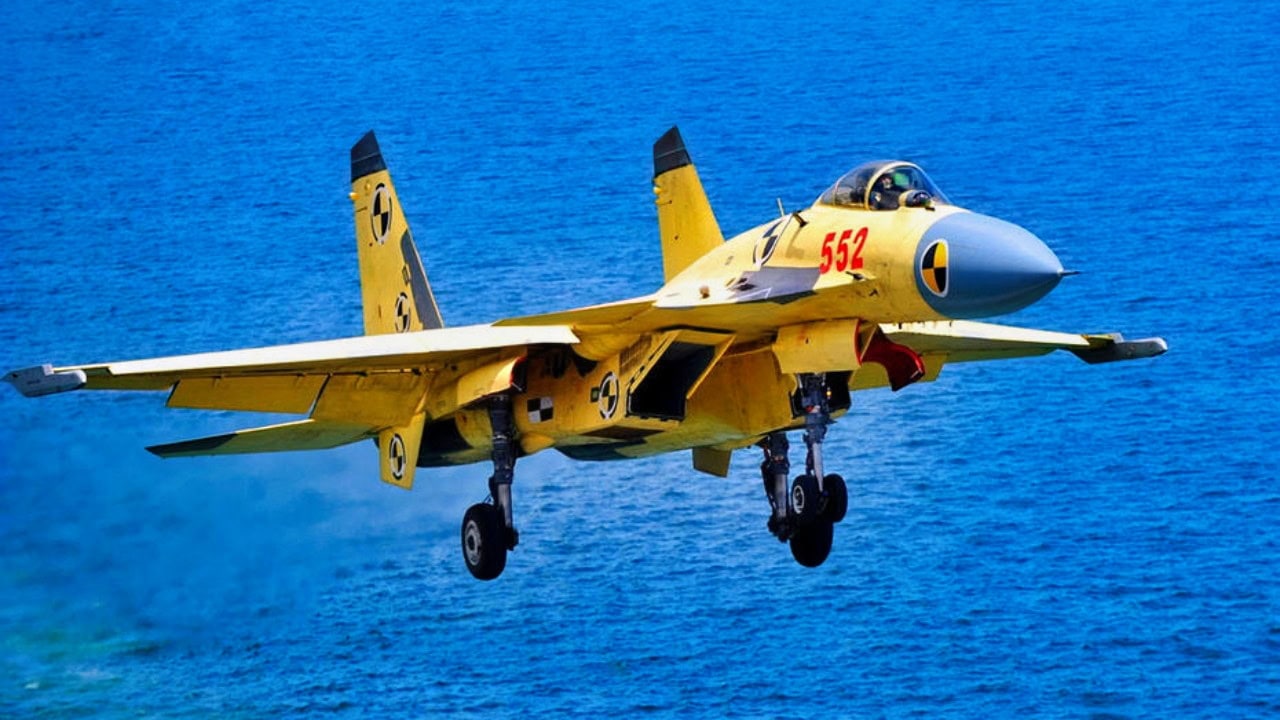
J-15 Flying Shark Fighter from China.
This brings us to the crucial issue of all-out military contingencies involving the survival of both countries and their differing strategic implications for Australia. In the case of Ukraine, the big question is what Australia would do if Russia’s war with Ukraine escalated into a full-blown military confrontation between Russia and NATO. From a moral and international legal perspective, there would be pressure on us to make some sort of contribution. But Ukraine is not in our region of broader strategic concern in the Asia-Pacific region. Moreover, if the war in Europe were to escalate to include Russian attacks on neighbouring NATO members, such as Poland and the Baltic countries, it would involve high intensity land-based military conflict for which the Australian Defence Force is not structured. We could make no more than a limited military contribution.
But such an escalated European war might create an opportunity for China to attack Taiwan. China could perhaps attack Taiwan at the same time as Russia expanded its war to neighbouring NATO countries. Although Taiwan itself is not in Australia’s area of immediate strategic interest (Southeast Asia and the South Pacific) a successful conquest of Taiwan and defeat of America by China would raise potentially first-order strategic threats to Australia, and our own survival as a fully independent state, for the following reasons.
First, if China decisively defeated the United States in such a war, then there might be nothing to stop China from expanding southwards and establishing military bases in our immediate vicinity. And a beaten US might retract into one of its historic phases of isolationism. Australia would then be strategically isolated and without a protector. Southeast Asia and the South Pacific would effectively come into China’s sphere of influence.
Second, such a shock defeat of the US would have grave consequences for Japan and South Korea. It would involve them conceding sea and air control of the East China Sea and the South China Sea to China. A China commanding the island of Taiwan would have military dominance over the South China Sea and Southeast Asia. A new China-centric geopolitical order would then most likely prevail throughout East Asia. Such a crisis might reasonably drive Japan and South Korea into acquiring a reliable retaliatory nuclear strike capability of their own.
Third, Australia would have to consider where its future lied under the jackboot of a dominant Beijing. Without the US alliance and our critical access to American intelligence, surveillance, targeting, weapon systems and world-beating military platforms, we would no longer have credible military capabilities. Would we then retreat into a neutral posture with only the pathetic remains of a credible military force?
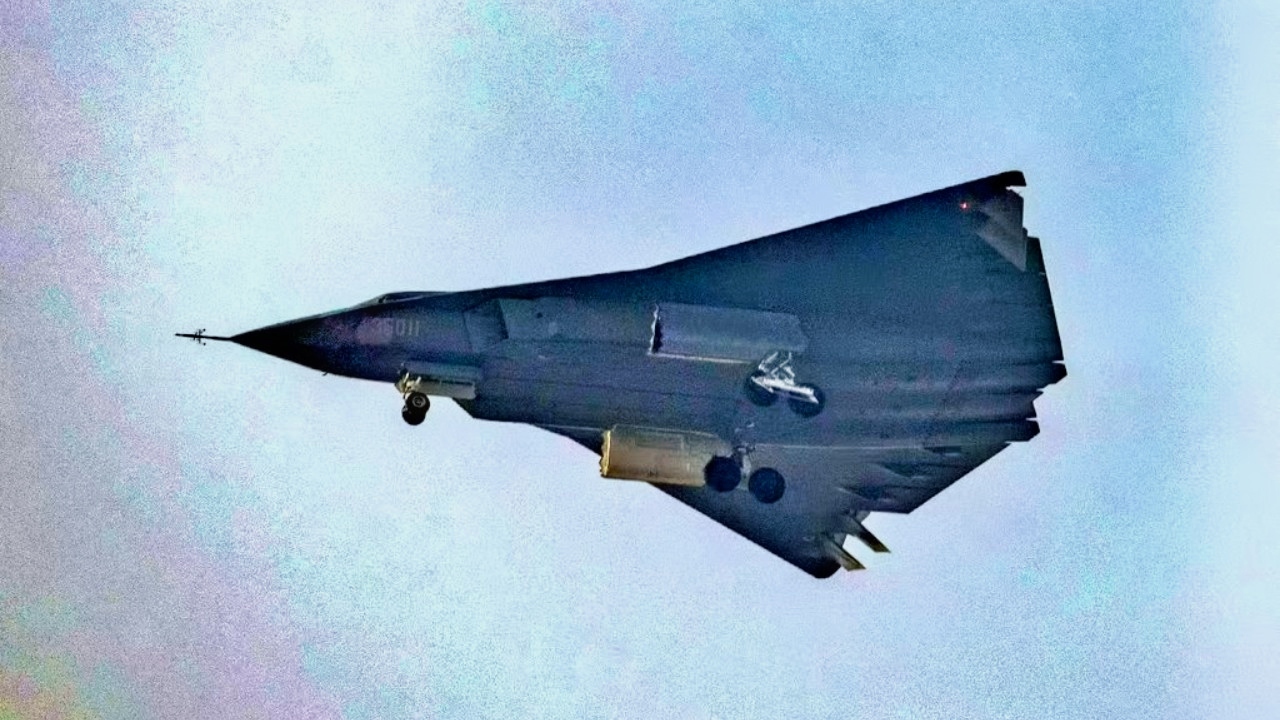
China J-36 Fighter. X Screenshot.
Fourth, the truly nightmare scenario would be a conjoining of Russian military successes against contiguous NATO members such as the Baltic countries and Poland with China’s defeat of America over Taiwan and the resulting dominance of Japan and South Korea. This wicked brew then drums up the ultimate contingency of an all-out nuclear war.
Those Australians who carelessly proclaim that the United States is finished, that China will inevitably dominate the entire Asia-Pacific region and that our only survival will be to get out of the ANZUS partnership need to think again. Theirs is a value-free world where we would be on the receiving end of communist China’s dominance.
So, in the event of a US war with China over Taiwan, what could Australia contribute? Our defence force is of a modest size but we have considerable potential to defend ourselves if, instead of just waiting for AUKUS submarines, we rapidly acquire sufficient long-range anti-ship missiles with ranges of more than 2000km.
We would, however, require access to airfields and ports—for example in Okinawa, which is less than 600km from Taiwan. But a more credible military mission for us would be to deny the narrow straits of Southeast Asia (Malacca, Sunda and Lombok) to China’s maritime traffic—including the 80 percent of its oil imports.
The purpose of this analysis has been to demonstrate the dangers of listening to those who focus only on the risks of resisting and deterring China. Instead, my analysis here concentrates on the dangers of not resisting and not deterring China.
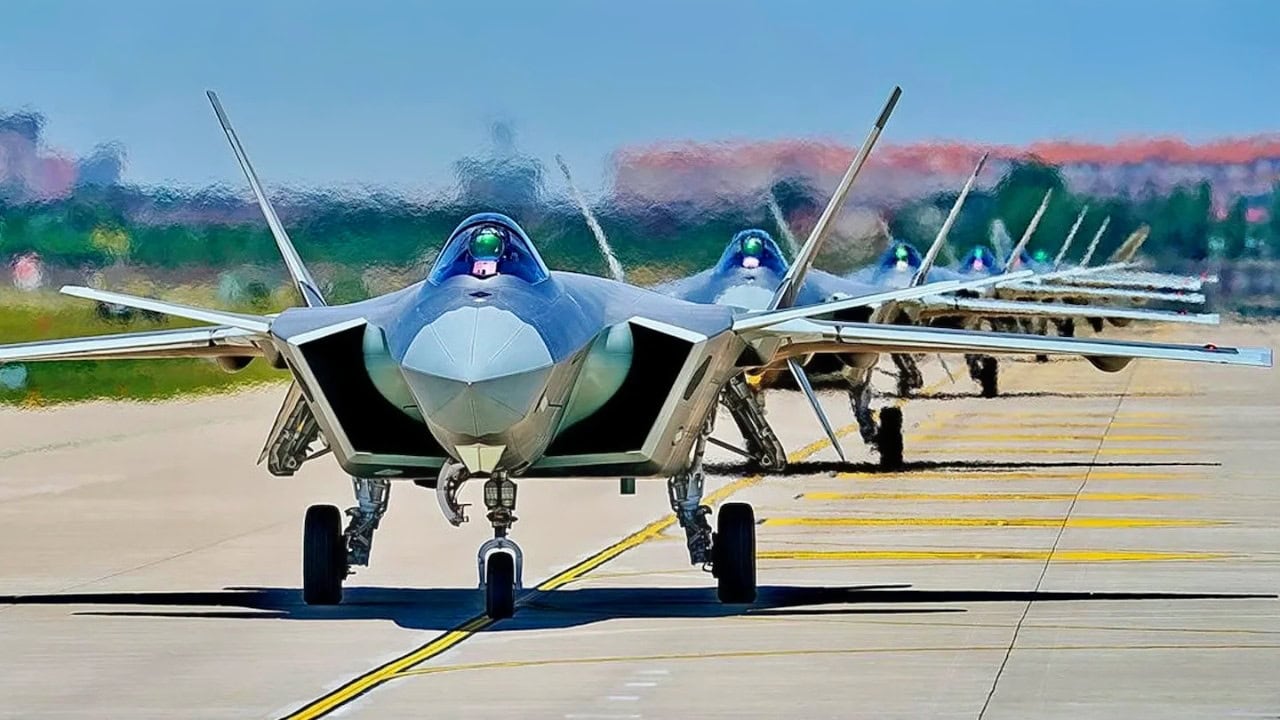
J-20 Fighter from PLAAF China
Moreover, when strategic push comes to shove, we need to recognise that, unlike Ukraine, Taiwan may become directly important in our defence planning priorities. Even so, we do have a strong national interest in seeing Ukraine liberated from Russia’s illegal invasion and we should do what we can to bring that about.
About the Author: Paul Dibb
Paul Dibb is emeritus professor of strategic studies at the ANU. He is a former deputy secretary of defence and director of the Defence Intelligence Organisation. This first appeared in ASPIs The Strategist.

 Conservative
Conservative  Search
Search Trending
Trending Current News
Current News 